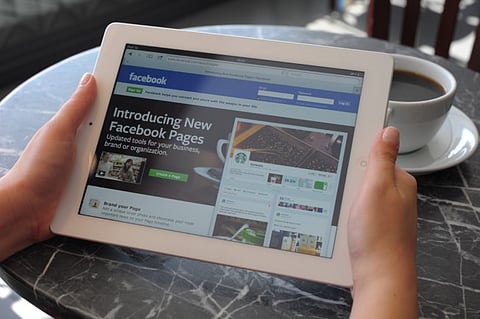Was life before the internet better?
Residents share experiences of communication and information sharing before the digital era

Dubai: Having no internet connection can seem like a form of punishment for many people nowadays.
But with landline phones and posted letters being the only form of communication up until the early 90s, life before the internet was a lot simpler even if it was a lot slower.
With the rise of the internet and therefore emails, Google, and social media — the way we interact, think, exchange knowledge and communicate has entirely changed.
Gulf News talked to residents from some of last generations who can recall life before the internet.
Indian Dubai resident Sumant Sareen, 69, describes life before the internet as “slow,” but reserved. He explained that sources of communication before the internet were limited to letters through the post, and in more urgent situations through telegrams and landlines. “At the workplace, there was something called ‘lightning call’ and later on came telex, and after fax,” said Sareen. Working in Engineering and Sales for over 44 years, Sareen, who is now retired, compared productivity levels during the same working hours over time. “We used to work just as many hours in the pre internet days, but we were less productive because communications and collection of information used to take much longer,” he said. However, while productivity may have been low, personal time was a lot more private.
Sareen explained that after office hours, there were very few intrusions from the workplace, and he was able to spend more time with family and friends. Unlike the present time, where there internet seems to be crowding out physically meeting people and has the potential to negatively affect relationships, said Sareen.
“One would be well advised to use it as a tool, and live in the physical world, not become addicted to it,” he said.
However, along with the birth of every generation in the past two decades, technology has continued to develop and create quicker and easier modes of communication.
Just like every other technological advancement, the internet’s progress has given each person the ability and power to manage all areas of their life from a screen- be it finances, work, social life, and personal interests. Easy accessibility is an advantage Australian Debbie Nicol, 57, appreciates. The Dubai resident, who recalls the calamity of life before technology, prefers life with the presence of the internet- but highlights the need for moderation.
Looking back from “here and now,” Debbie said it was a life that was under an influence of stability. Describing life then as “organised and predictable,” she pointed out that people simply did not have the choice to move at the pace we do now, which resulted in a calmer life. “Looking back as if I was in that past life, I really was contented only because ‘you don’t know what you don’t know’ so I was unaware that life could be different,” said Debbie.
Comparing how she spent her time back then and her time right now, Debbie said the difference is not about the number of hours spent on the internet, but how the hours are spread seeking information. “If the tool was a book then, I still was anchored to it when needed, just as I’m anchored to a computer or apps when I need them,” she said. Running her own business, Debbie said the one major difference is the impact of “24/7 living, 24/7 working and 24/7 ‘being on’.”
“Yet I have the choice to turn it all off when it’s too much, just as I did when I read or studied with a book years ago,” she said.
With life is moving at a fast pace, Debbie said she does not want to be left behind. Being at the forefront of change, she enjoys the convenience of technology and its ability to double if not triple productivity in multi-tasking. “I can be detoxing on a beach in Thailand whilst also writing a book, in touch with my publisher and facilitating an international online course and then move onto a Skype meeting with a business client – all at the one time,” said Debbie.
Relationships in the internet era
This accessibility to large quantities of data and easier communication has in turn affected people’s relationships the most, said Dr Saliha Afridi, clinical psychologist and director of LightHouse Arabia in Dubai.
Human interaction in relationships is the area of an average person’s life that has changed by the progress of the internet as it has increased the overall volume and frequency of communications, she said.
While social networks were limited to family, friends, neighbours, and work colleagues who lived and worked close, a new world of online possibilities was born with the progress of the internet. “It has widened our social networks that we are now able to form online relationships with people whom we do not know and would never otherwise have met,” said Dr Saliha.
This technology however has a dark side. Online users can leave them selves vulnerable to privacy issues, predators and criminal activity. Children are also vulnerable members of society, and can be negatively affected. “Some research suggests that the proliferation of social media is fundamentally affecting our self-image and not for the better,” said Dr Saliha. Cyber bullying is another problem that was born after the creation of social media and online chatting, she added.
Dr Saliha pointed out that the internet is not necessarily bad or good. “The internet is here to stay and we need to take responsibility for how we use it and how we teach our children to use it,” she said.
Sign up for the Daily Briefing
Get the latest news and updates straight to your inbox



